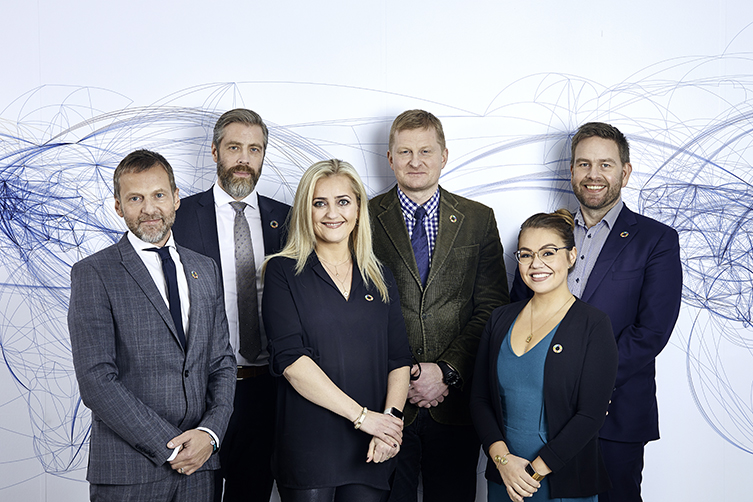Isavia is a publicly owned company owned by the Icelandic state. The operations of the company are in accordance with Act No. 153/2009 on the Merger of the Government-owned Limited Companies Flugstoðir and Keflavík Airport, Act No. 76/2008 on Establishing a Government-owned Limited company for the Running of Keflavík Airport, Act No. 102/2006 on the Establishment of a Public Limited company for Air Navigation Services and Airport Operations by the Icelandic Civil Aviation Authority, and the Aviation Act (Act No. 60/1998).
The company’s corporate governance is prescribed by Act No. 2/1995 on Public Limited Companies (August 2012), the company’s Articles of Association and Rules of Procedure of the Board.
The company’s Board refers to the Guidelines of Corporate Governance and complies with them in all major respects, although it is not legally bound to do so. The main deviations are that the company does not have a nomination committee, as the nomination for the company's board is with the Minister of Finance and Economic Affairs, who manages the state's share in the company. Two formal sub-committees – the Remuneration Committee and the Audit Committee – currently operate under the company’s Board.
Isavia's fiscal year is the calendar year. The company's annual accounts can be accessed at the Register of Annual Accounts as well as on the company's website www.isavia.is
No court rulings have been issued during the year in which the company is believed to have broken any laws or regulations.
Laws on the company can be accessed on the Alþingi's website, www.althingi.is, and articles of association and rules of procedure on the company's website www.isavia.is. Guidelines on corporate governance can be found on the Iceland Chamber of Commerce's website, www.vi.is.

ISAVIA BOARD OF DIRECTORS
The Board of Directors of Isavia consists of five members and five alternates, all of whom are elected at the Annual General Meeting for a term of one year. Board members are nominated by the Minister of Finance and Economic Affairs. The gender ratio among Isavia’s Board members and alternates is 40% women and 60% men. All Board members are considered independent in the sense of the Guidelines on Corporate Governance. All Board members have given the Board an account of their assets in other companies, and their participation in them does not have an effect on their work as Isavia Board members.

